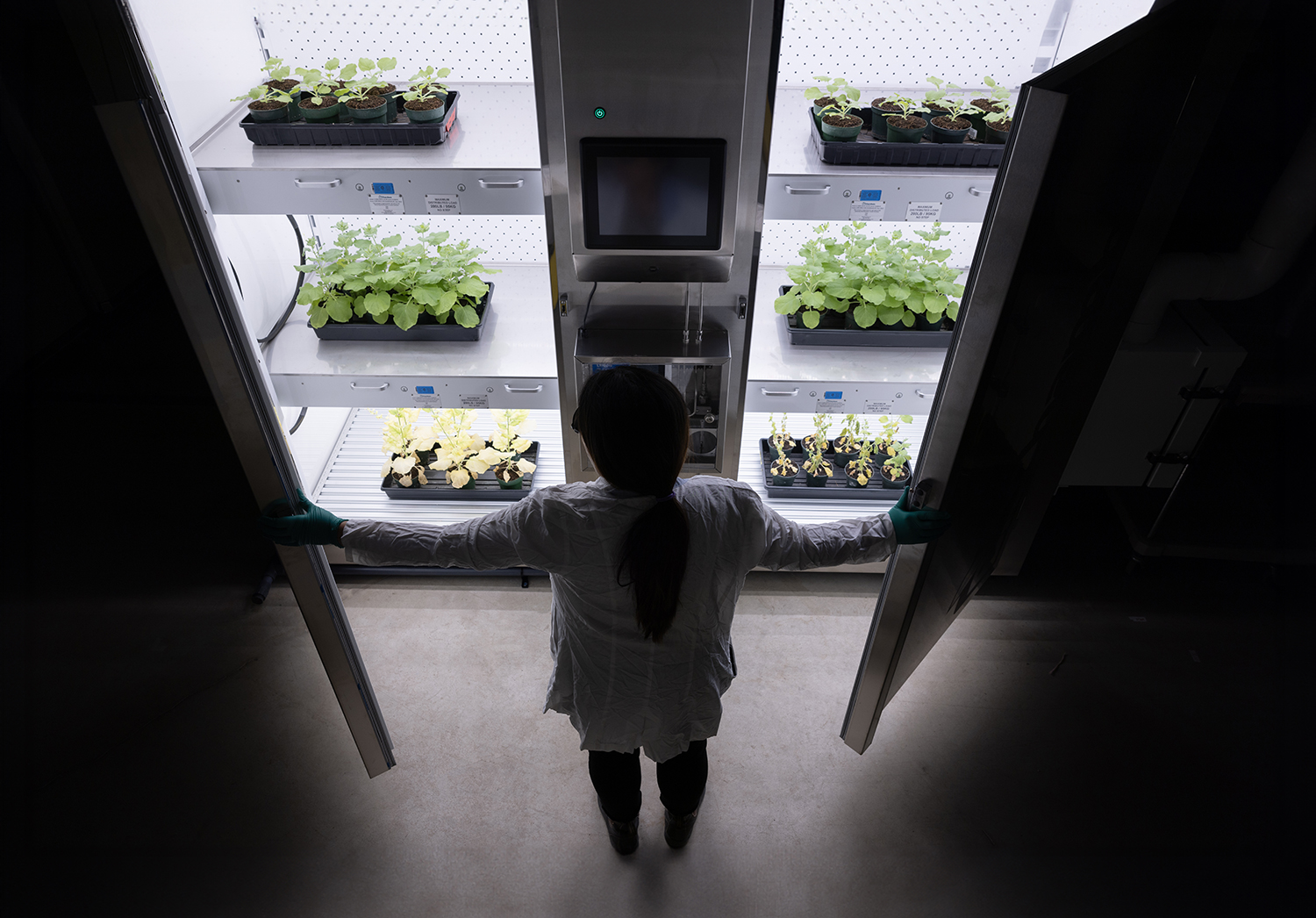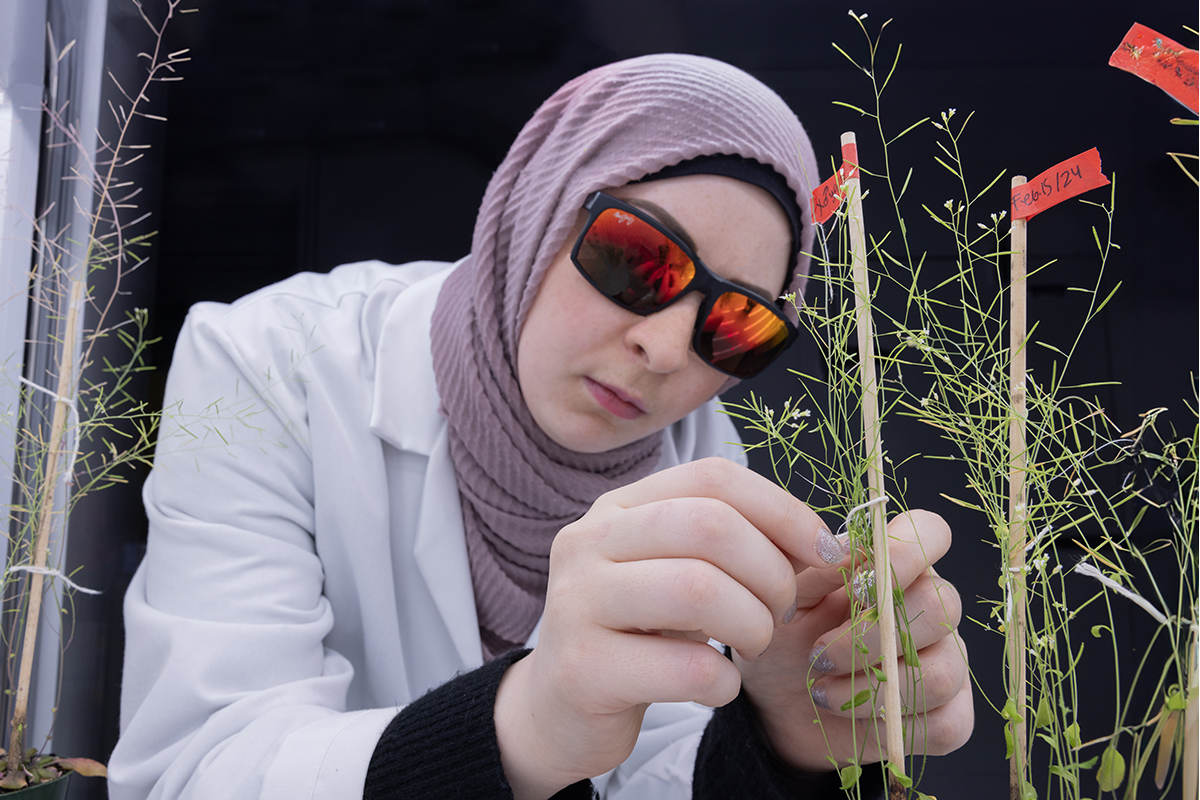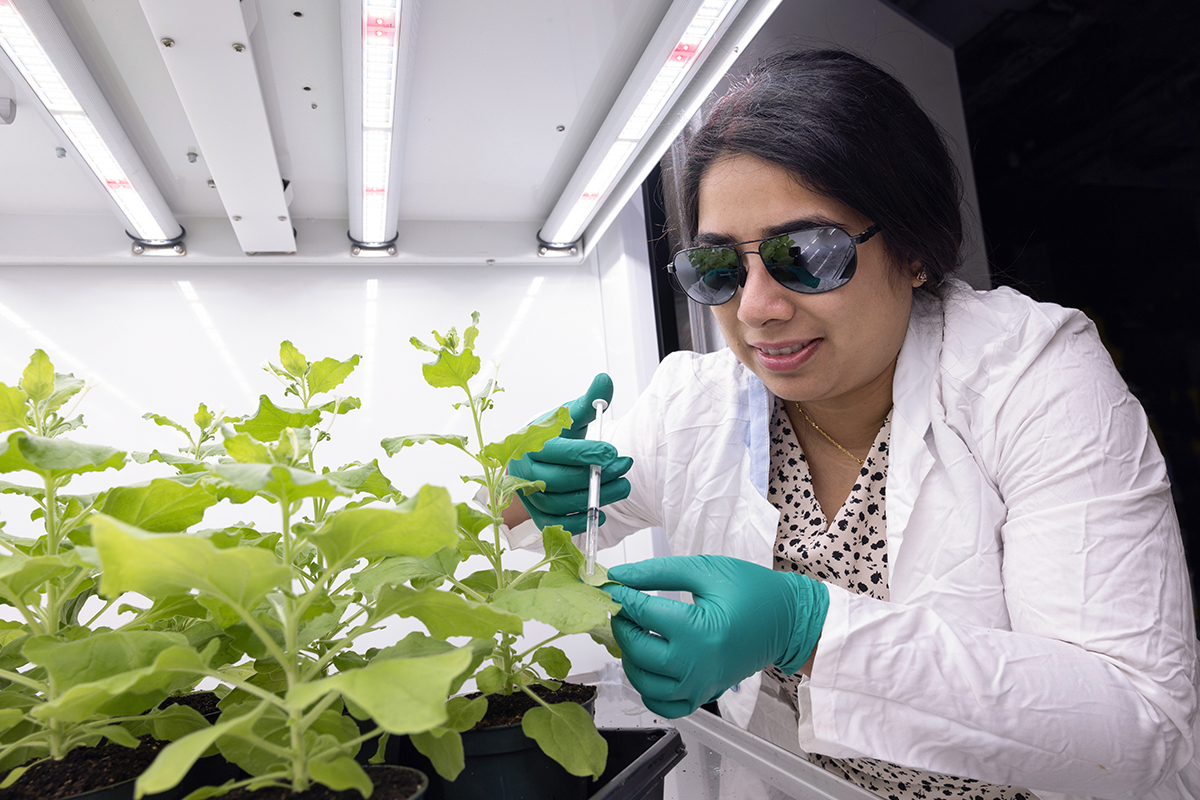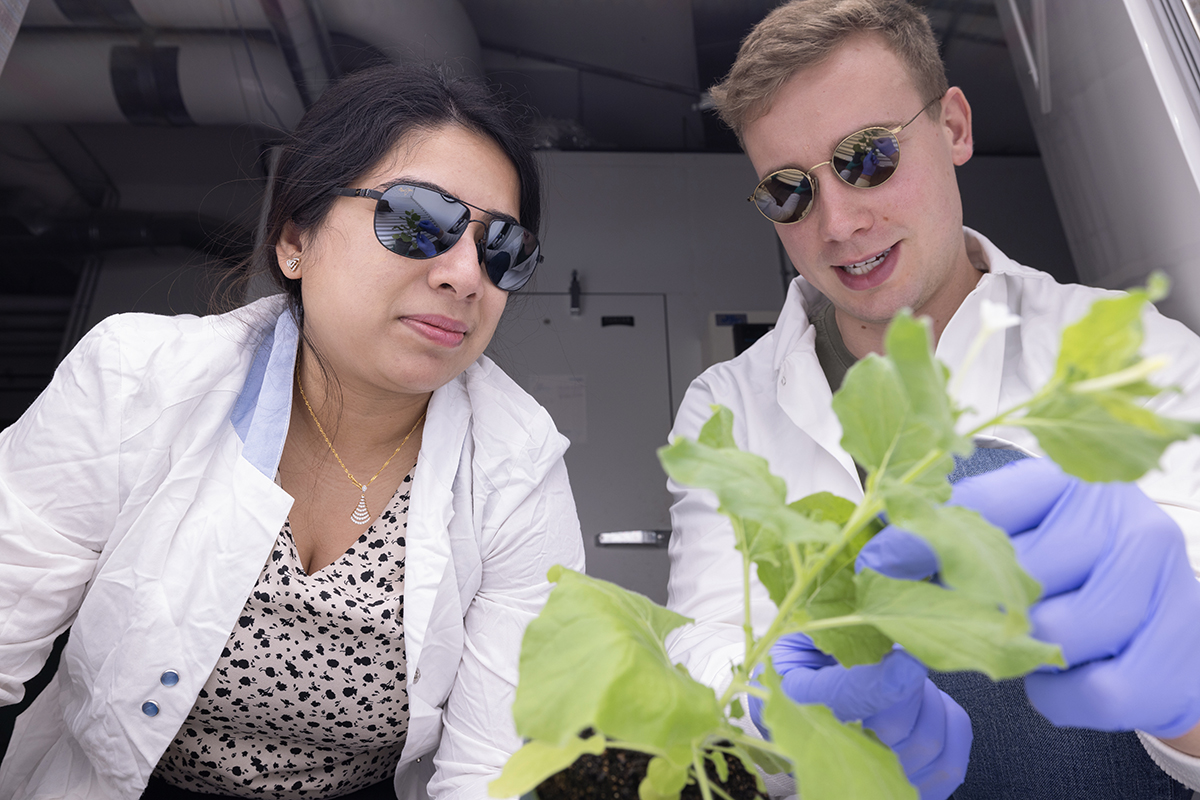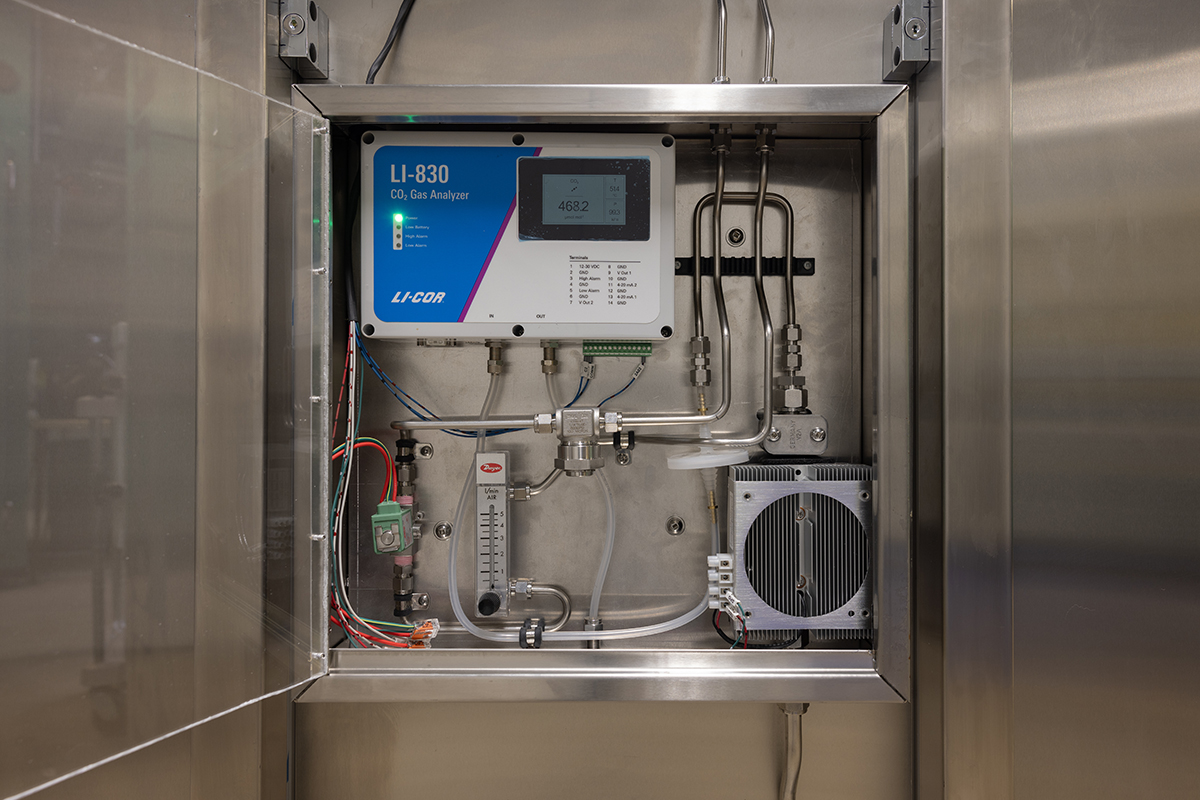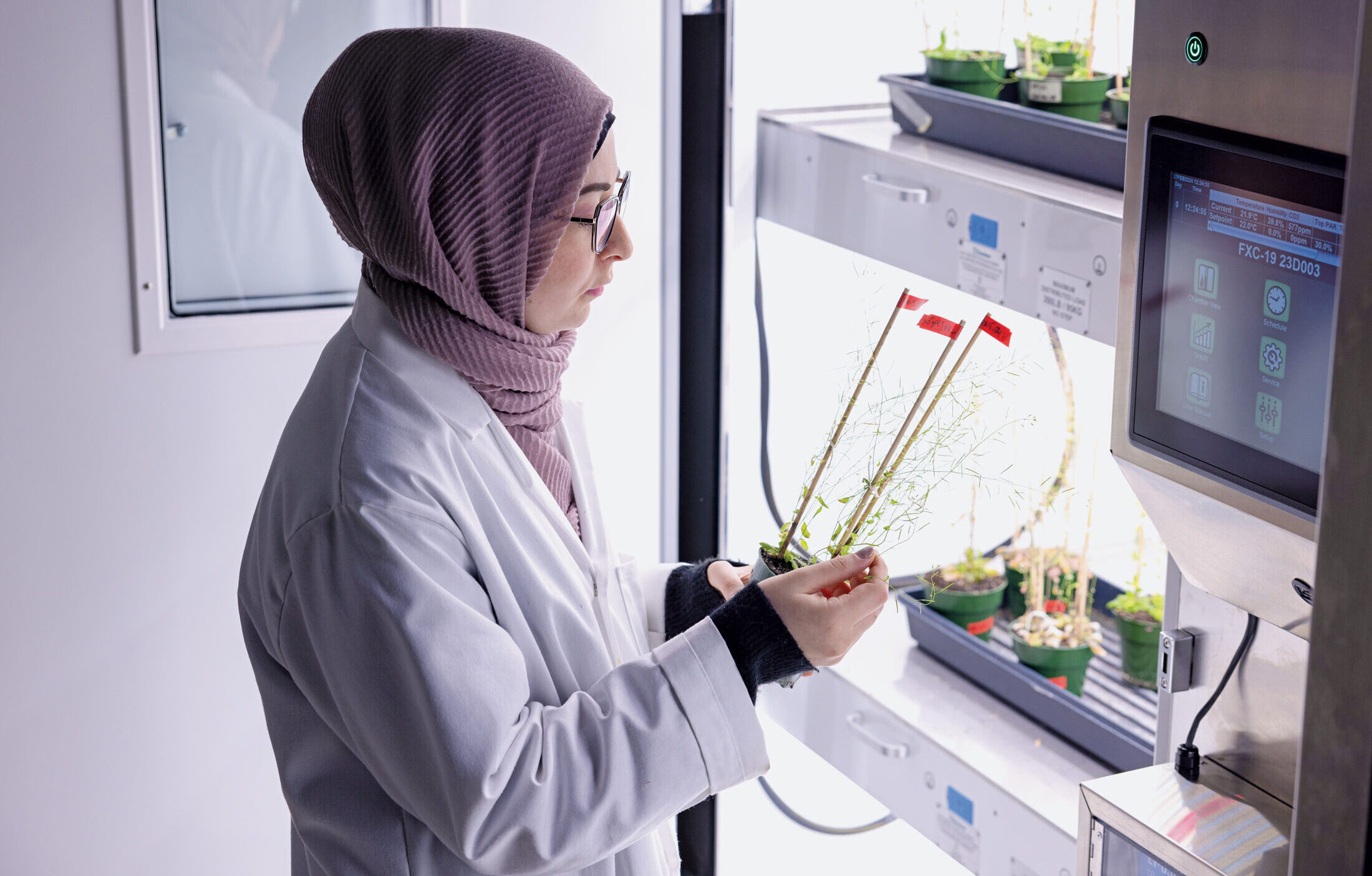Four new plant growth chambers will allow biologists at U of T Scarborough to do research that may one day lead to stronger, more resilient food crops.
Located in a basement lab of the Science Research Building, the chambers are equipped to mimic different types of growing conditions. Researchers can control the amount of heat, humidity, carbon dioxide and light intensity, as well as wind speed and direction inside the chambers. They even have an astronomical clock that can recreate the average amount of sunlight received during different times of year in any part of the world.
Here, Jenan Noureddine, a PhD candidate in biological sciences, checks on the state of her Arabidopsis (rockcress). These small flowering plants are related to cabbage and mustard and are among the most widely studied by biologists due to their status as a model organism (like the plant equivalent of a lab rat).
The chambers will be used for a range of experiments, including identifying genes that are important for disease resistance and proteins that help regulate growth and development.
“The ultimate goal is to translate our research into improved crop varieties that can support local agriculture,” says Adam Mott, an assistant professor in the department of biological sciences, who manages the facility.
